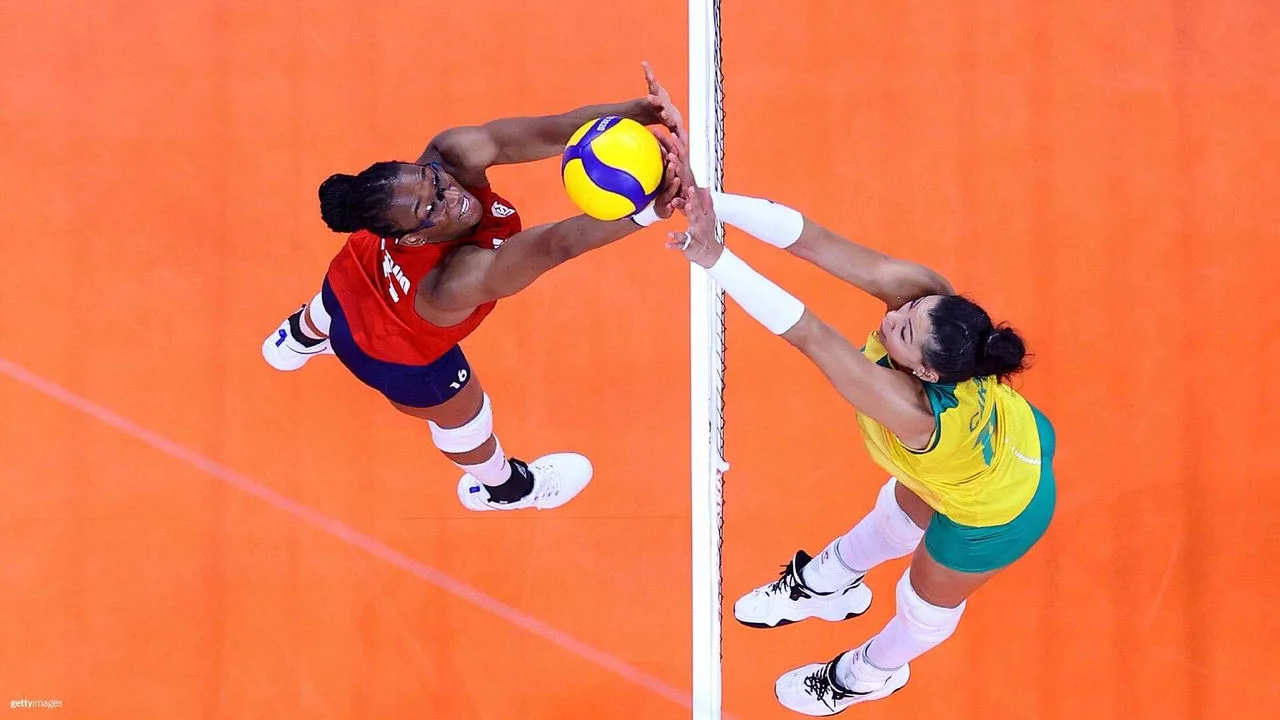Originally invented in 1895, volleyball has grown into a global sensation. Once considered a recreational pastime, the sport is now recognized for its wide-ranging health, cognitive, and social benefits. In the United States alone, volleyball has become the leading team sport for girls at both high school and college levels, according to the USA Volleyball Foundation.
Globally, volleyball remains one of the most watched sports during the Summer Olympics, with professional leagues attracting close to 1 billion fans. On the recreational side, an estimated 800 million people play volleyball at least once a week — on hardwood courts, sandy beaches, grassy fields, or synthetic surfaces.
How the Game Works:
Volleyball is played between two teams, separated by a net, on a rectangular court. Each team is allowed up to three touches to return the ball over the net and attempt to score by landing it within the opponent’s boundaries or forcing an error. The game demands constant movement, including running, jumping, diving, and hitting.
Success in volleyball requires more than physical strength — it calls for quick decision-making, agility, teamwork, and strategy. Core skills include blocking, serving, serve-receive, setting, and fast-paced offense, all of which demand coordination and communication.
Boosting Physical Health:
Volleyball delivers a full-body workout. Training routines include lateral movements, plyometrics, agility drills, and hand-eye coordination exercises. The sport mimics high-intensity interval training (HIIT), which research links to improved cardiovascular function, reduced blood pressure, and better glucose control.
Repeated jumping, serving, and hitting build strength across the legs, shoulders, arms, and core. Regular play increases flexibility, balance, and reflexes, and studies show it enhances hand-eye coordination and reaction speed by up to 20% more than many other team sports.
As a high-calorie-burning activity, volleyball helps maintain a healthy weight and muscle tone. Long-term play is associated with improved bone density and reduced risk of conditions like osteopenia and osteoporosis, especially among women.
Brain Gains and Mental Well-Being:
Beyond physical benefits, volleyball offers powerful cognitive and psychological advantages. The game demands quick thinking, mental agility, and precise decision-making — all of which boost executive brain function. Participating in team sports like volleyball has been shown to improve self-confidence, resilience, adaptability, and leadership.
Players also benefit from enhanced social skills and emotional well-being. Team dynamics foster trust, collaboration, and a sense of shared responsibility. The sport is linked to lower levels of stress, higher self-esteem, and stronger social connections.
Volleyball’s inclusive nature creates a psychologically safe environment, encouraging positive mood and mental wellness. With proper training, warm-ups, nutrition, and hydration, players of all ages can enjoy the sport while minimizing risk of injury.

















